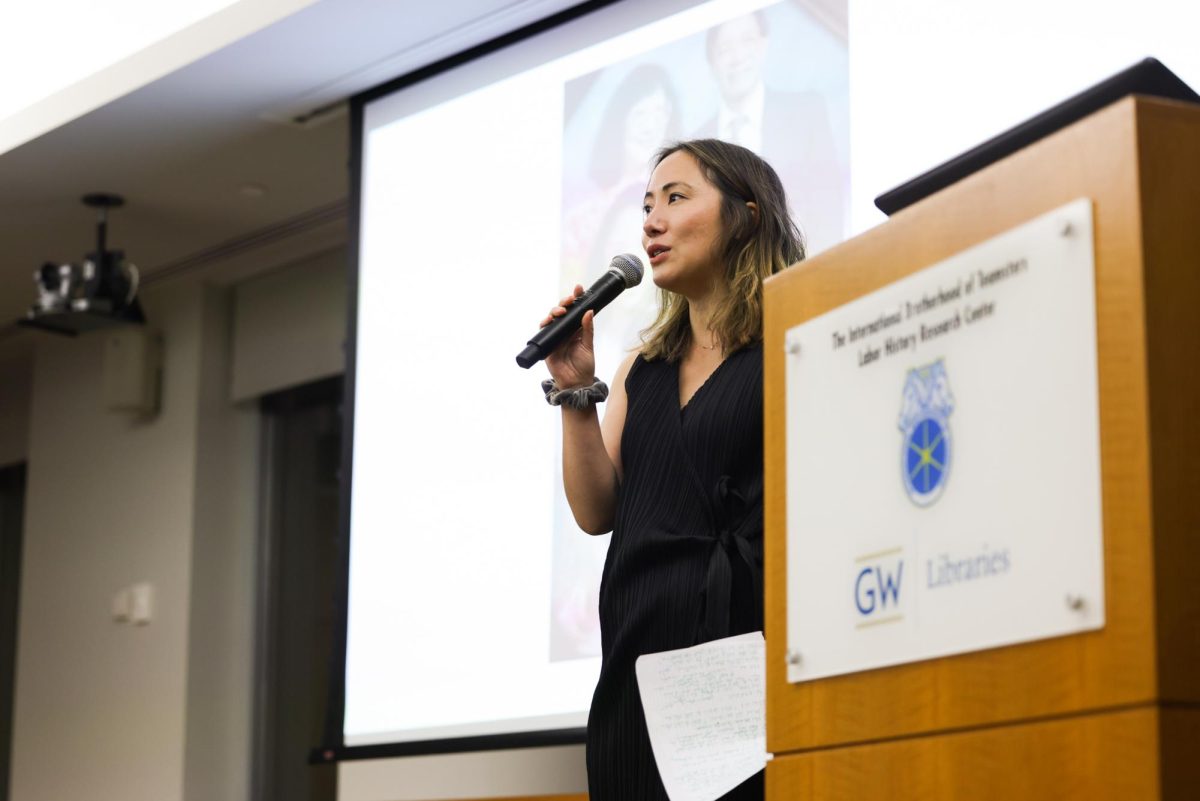As sexual assault survivors try to heal, one campus group is offering them a space to recover through movement.
A student organization called Ascension: GW began working with survivors of sexual assault in October, fusing yoga with traditional talk therapy to help with recovery.
“You have a tool to make you feel more grounded and that you have better control over your body,” program leader and 2013 alumna Emily Rasowsky said. “This therapy and these techniques put you back into your body.”
Rasowsky, who founded the group Students Against Sexual Assault as an undergraduate, also helped established Ascension’s programs and serves as a part-time instructor.
“It takes a lot of courage to come to a class like this,” Rasowsky said. “You have to be at a certain point or comfort level in order to participate in the class and realize that there is a community out there, even if you aren’t speaking to each other.”
The group meets once a week and is taught by a lead instructor, who teaches the yoga sequence, and an assistant instructor.
Lara Kassoff, a staff clinician and trauma services coordinator at the University Counseling Center, said a physical approach to therapy can help recovery when discussing the subject is painful.
“Sexual assault can be very difficult to talk about,” Kassoff said. “But it can be very powerful to be part of a group that connects through movement rather than speaking…and it is empowering to take ownership of your own body, especially after surviving a sexual assault.”
The program is sponsored by the Knapp Fellowship for Entrepreneurial Service-Learning, which started in 2010 and awards a student up to $10,000 every year to implement a service-oriented plan.
GW has counted 39 reported cases of sexual assault from 2010 to 2012, according to the University’s annual crime report, though those likely go widely underreported. The University has increased its focus on addressing sexual assault over the last year, reshaping GW’s policy for reporting abuses, creating a website of support resources and hiring an administrator to oversee the efforts.
After Ascension’s first year, the group will collect and analyze its data to review and validate the impact of the yoga method.
The program promotes an understanding and intimate environment – classes are limited to 10 to 15 people – that doesn’t demand yoga expertise or intensive physical exertion.
It also teaches calming techniques that students can use outside of the yoga studio setting, participants said.
“The class is welcoming and they always give us space to choose how we move and breathe,” said one group member who spoke on the condition of anonymity. “It isn’t like a regular class with a lot of commands and movement, it is focused on relaxing and [noticing] how we are feeling. I think it has helped me relax and feel more in control.”
The class also partners with community organizations, like the non-profit group Yoga Activist, and hopes to ultimately involve more student leaders.
Ascension aims to expand its project outside of GW, with hopes that these kinds of programs become the norm on college campuses.
“The goal is that this program can be at other universities and exist,” Rasowsky added. “It is to create a community within each individual school.”





